

As competition for talent heats up, employer attractiveness—the likelihood someone would consider applying to a given company if they were looking for a job—has become a vital signal of corporate reputation and a defining factor among the best companies to work for in Europe.
Drawing on survey data from Caliber’s Employer Attractiveness Rankings, which analyze the top companies in France, Germany, Italy, and the UK, we highlight five cross-market themes and the best workplaces in Europe that exemplify them.
All insights are grounded in media coverage from the past 12 months.
Europe’s top companies lead with purpose and trust. The best companies to work for in Europe connect strong values with real action — from sustainability to transparency — proving that trust is the foundation of employer attractiveness.
Reputation drives recruitment and retention. Caliber’s data shows a clear link between corporate reputation and the ability to attract and keep top talent, reinforcing that reputation is now a strategic advantage for leading employers.
Innovation and inclusion define great workplaces.The top companies in Europe invest in technology, learning, and inclusive cultures that empower people to thrive — showing that progress and belonging go hand in hand.
Principles matter as much as performance.Ethical governance, open communication, and fairness are key to how Europe’s best companies sustain loyalty, credibility, and long-term talent appeal.
Across all four countries, organizations that made bold, tangible commitments to the green transition saw higher appeal among potential employees and jobseekers alike.
To meet strict requirements for environmental impact and sustainability, many of these organizations continue to determine how best to align business growth with green innovation.
The top companies employing large workforces in clean energy sectors were among those most likely to respond positively to changing market demands, based on only survey data collected for Caliber’s rankings.
Digital transformation leaders gained appeal by signaling they are future-proof employers — organizations with a strategy rooted in innovation, technology, and the ability to adapt quickly to new digital realities.
According to the survey, technology continues to be a key driver of employer attractiveness, shaping how colleagues collaborate, exchange feedback, and maintain a sense of connection in hybrid environments.
When it comes to the top companies to work for in Europe, our data shows that trust and transparency remain crucial drivers of reputation — especially when crises and media scrutiny can amplify risks instantly.
This year’s rankings reveal that ethical lapses and weak governance often outweigh technical strength or innovation when it comes to talent perception.
To accurately represent honest feedback, our study draws only from surveys gathered from the companies employing thousands of people across multiple countries in Europe.
This important context ensures that each company surveyed is evaluated fairly, based on its actual employee presence, performance, and governance credibility.
Europe’s best companies to work for share a people-first mindset. They emphasize flexibility, transparent feedback, and a sense of belonging that connects colleagues across borders.
Caliber’s data shows that organizations with strong HR strategies and open communication consistently performed better across hybrid and distributed teams, showing that human connection remains the foundation of great workplaces.
Our 2025 data from France, Germany, Italy, and the UK shows a clear shift in what makes a company a great place to work and attractive to talent. Prestige and pay still matter, but they represent only a percentage of what truly drives employer appeal today. Today’s top employers in Europe stand out by aligning their actions with their values.
We call this the 3 Ps of Modern Employer Appeal:
Leading companies in Europe aren’t just talking about purpose — they’re living it.
Air Liquide is advancing hydrogen energy development to strengthen regional infrastructure. Terna is modernizing Italy’s grid for renewable integration, while Saint-Gobain pioneers green building solutions that support long-term sustainability. Siemens Energy invests heavily in cleaner technologies and workforce reskilling.
Each of these eligible organizations demonstrates a deep commitment to societal impact and empowers professionals to be part of the answer to climate and energy challenges.
Talent across countries is increasingly drawn to companies that prioritize innovation, inclusion, and long-term growth.
SAP, STMicroelectronics, and Ferrari are capturing attention by leading in AI, semiconductor development, and electric mobility. AstraZeneca’s £650 million life-sciences investment showcases how innovation and infrastructure can transform communities.
Meanwhile, Lloyds Banking Group advances internal mobility and inclusive leadership programs that appeal to diverse professionals at every degree of their career journey.
The basics still matter — fair pay, transparency, and trust — but what sets these organizations apart is how they combine progress with genuine care for inclusion and employee well-being.
Integrity remains the quiet foundation of employer reputation across Europe. LVMH, STMicroelectronics, and Legrand experienced reputational setbacks tied to governance lapses, while GSK’s DEI program rollback raised questions about accountability.
In contrast, eligible leaders such as Hermès, Ferrari, and Airbus earn loyalty by promoting employee ownership, equitable policies, and cultures rooted in fairness and inclusion.
These organizations understand that credibility comes not from messaging but from actions that accurately answer the expectations of today’s population of informed professionals.
The Bigger Picture
Reputation has evolved from a communication tool into a strategic advantage. In the fluid labor markets of Europe, where mobility, values, and transparency define choices, employer reputation determines who attracts and retains the best talent.
Those at the top of the Europe rankings are doing more than building profits or products — they’re investing in people, principles, and purpose.
By aligning development, governance, and trust, these organizations are showing that the true currency of talent lies not in hierarchy or half-measures, but in building authentic relationships that last.
Want to understand what makes the best companies to work for in Europe stand out?
Use Caliber’s data-driven insights to measure your employer reputation, benchmark against peers, and build a brand talent trusts.

A former editor at the Associated Press, James drives Caliber's storytelling around the fast-emerging field of stakeholder intelligence — exploring how companies can harness real-time data about the people who matter most to their success to make smarter decisions about their brand, reputation, and business strategy.
You may also be interested in:

How DEI Policy Changes Are Shaping Employer Reputation in Corporate America
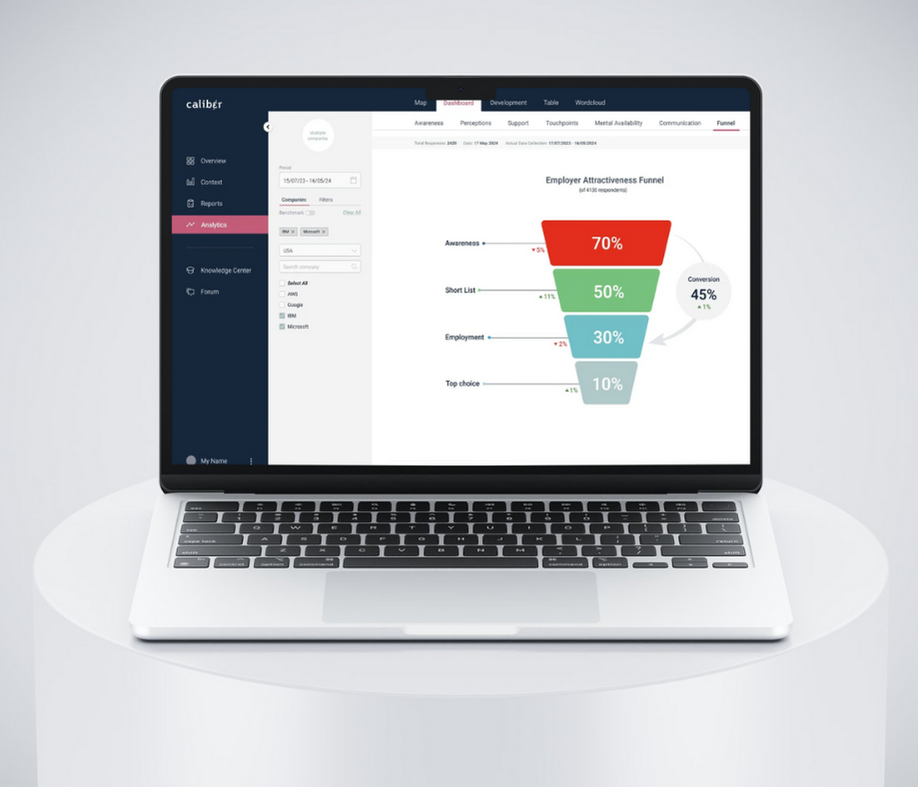
Why should companies track Employer Attractiveness?
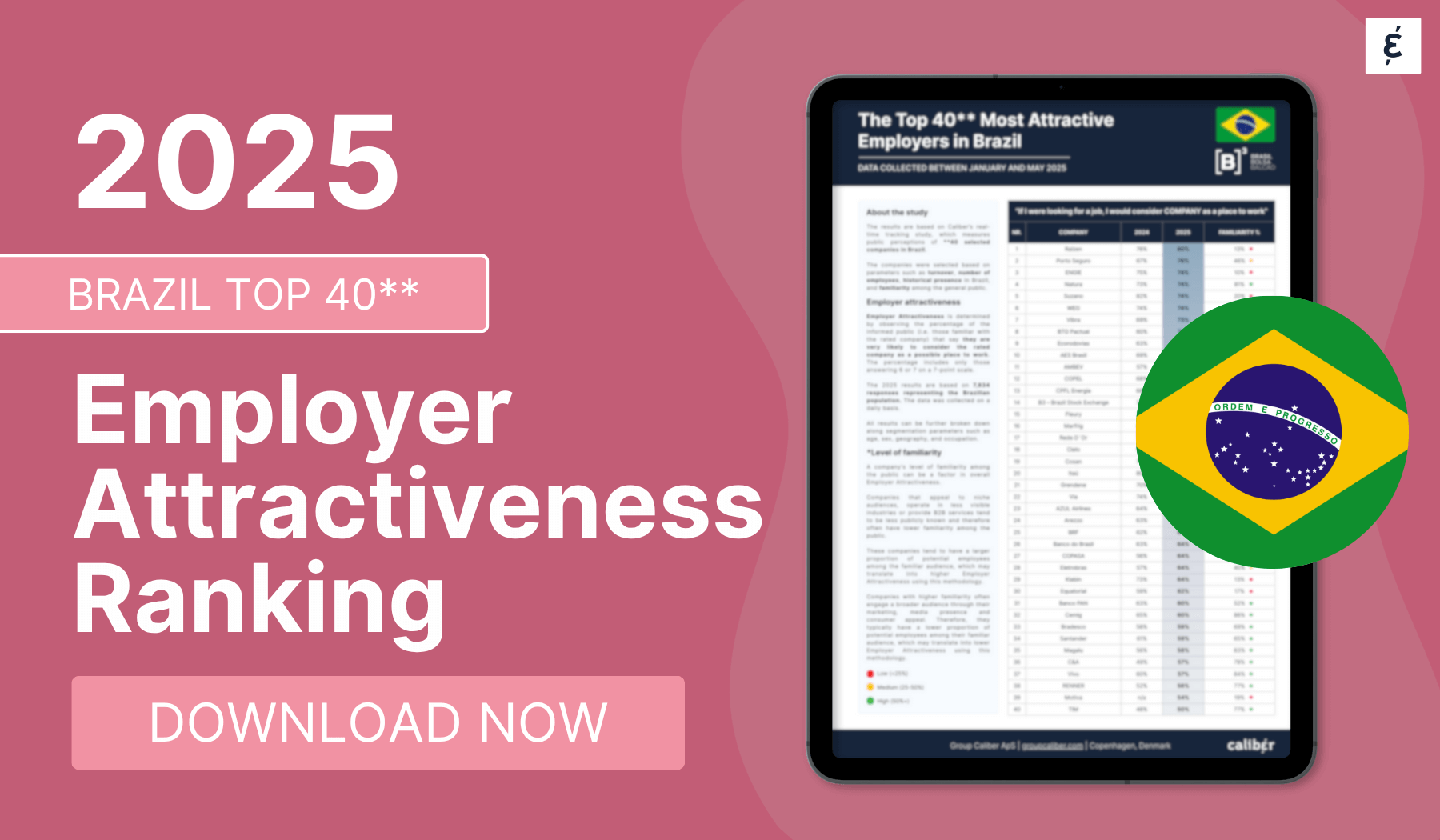
Top 40** Most Attractive Employers in Brazil in 2025
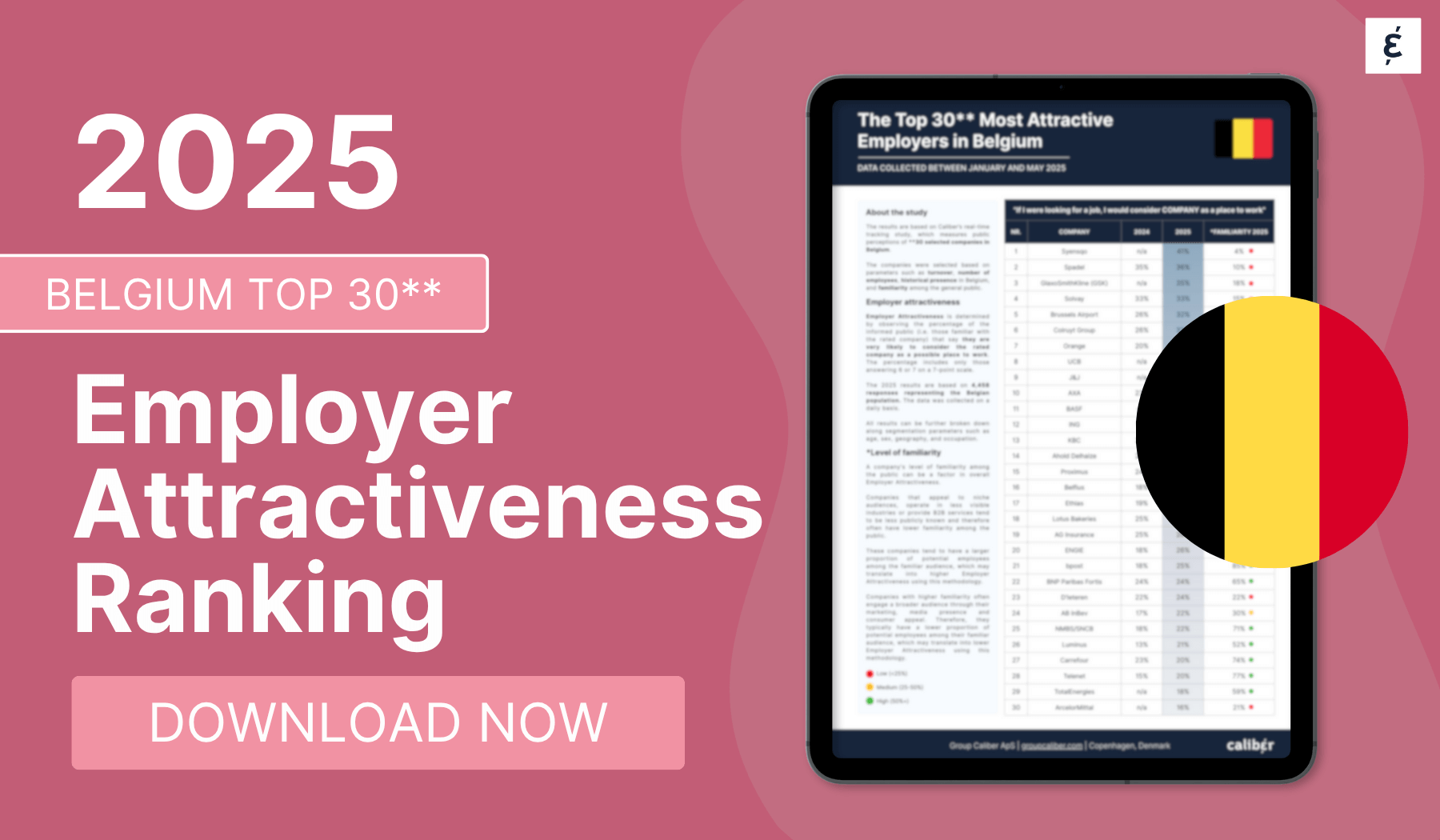
Belgium Top 30 Employer Attractiveness Ranking 2025
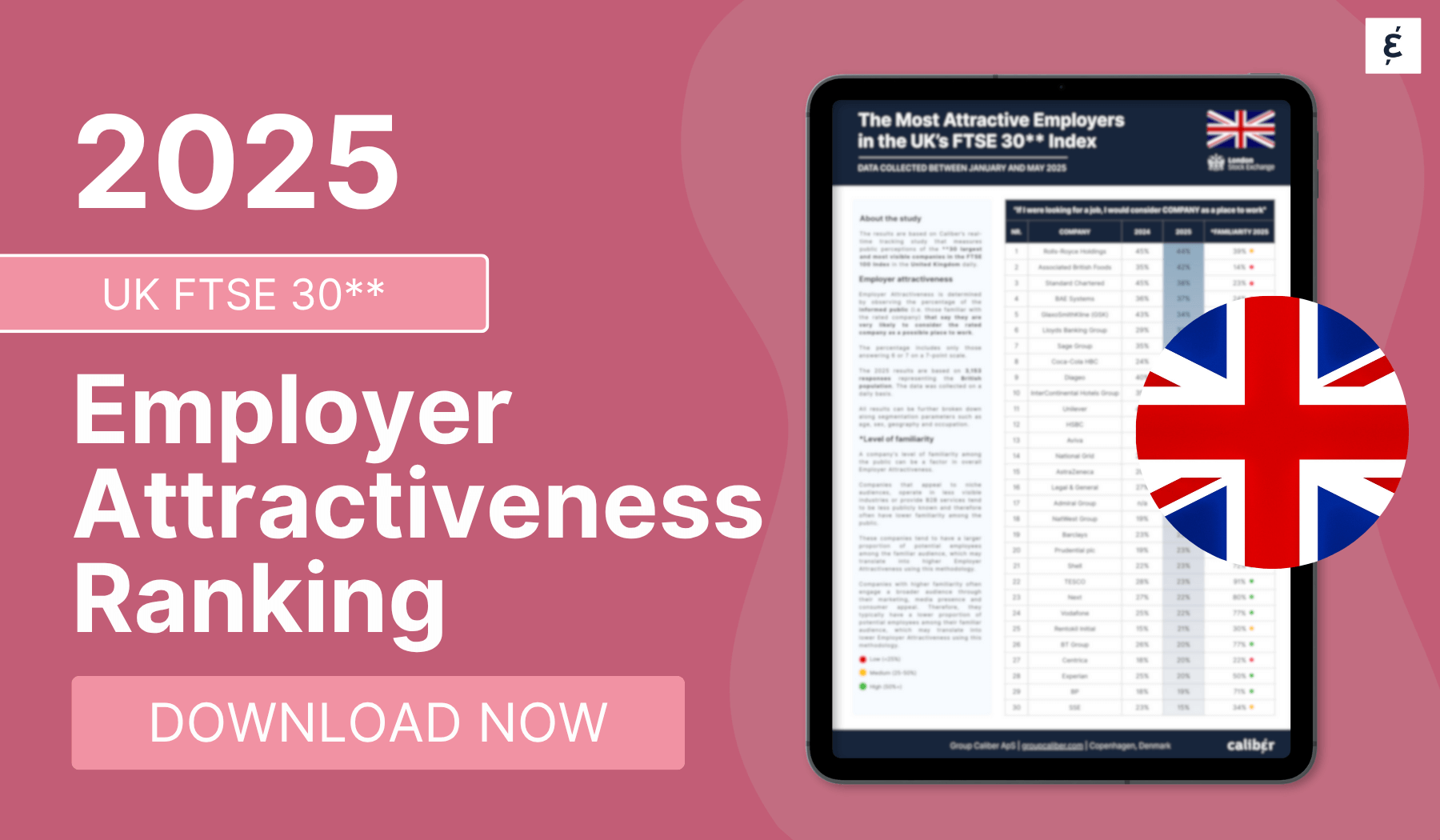
UK FTSE 30** Employer Attractiveness Ranking 2025
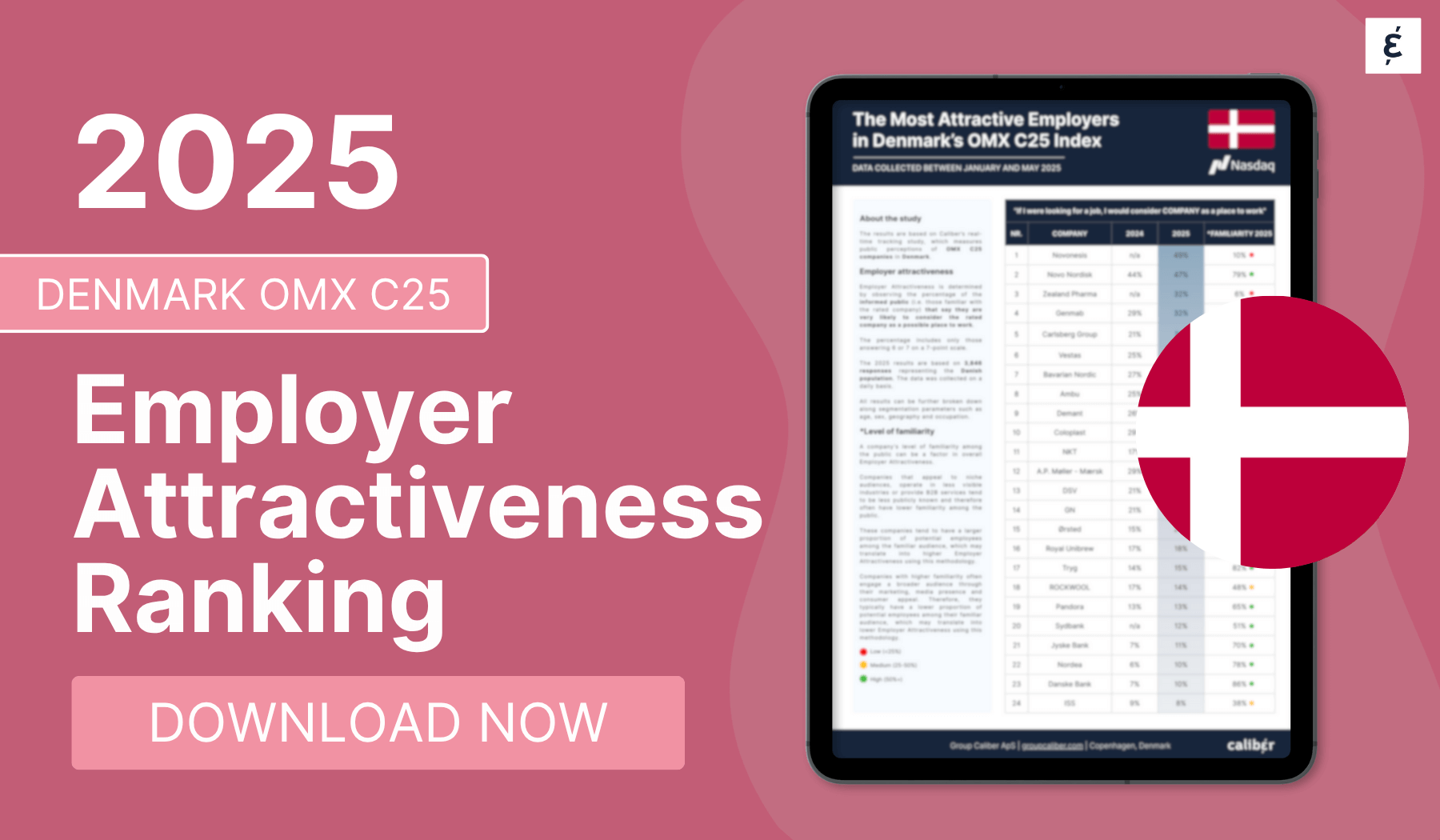
Denmark OMX C25 Employer Attractiveness Ranking 2025